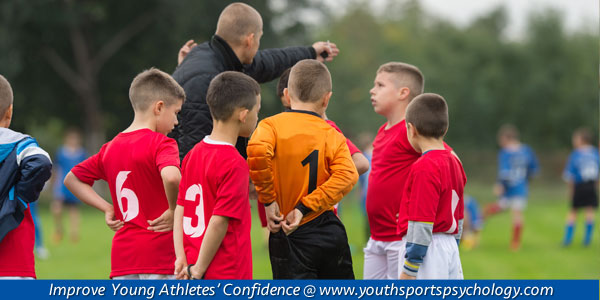
Growing Confidence in Youth Sports
Can kids really grow their confidence in sports today, given that they have to deal with society’s pressure to excel, untrained and sometimes difficult coaches, bullies, and parents who are sometimes over-invested in winning?
That was the gist of a question we got yesterday from a 22-year-old student from the Columbia School of Journalism. She’s writing a piece about youth sports and is intrigued by the many challenges that young athletes face these days.
She also asked, “Is it better for kids to play sports and risk losing confidence (with bullies and bad coaches) than to not participate?” And: “Do the benefits outweigh the disadvantages in today’s youth sports scene?”
Here’s our answer: Yes, the benefits of taking part in youth sports outweigh the disadvantages. And yes, kids can enjoy sports in the face of many challenges–as we think it prepares them for life.
But kids are more likely to enjoy sports and thrive if they know how to take control of their confidence and stay mentally tough.
It’s true that many kids encounter adversity in youth sports. They may get little playing time, they may encounter bullies, or they may lose confidence from too much negative feedback from a coach.
But young athletes can learn from these experiences—and turn their lessons in sports into critical life skills.
However, they need to be given the tools and resources required to remain confident and mentally tough.
That’s where you, as parents and coaches, come in. You can help kids boost their confidence by, first of all, identifying the everyday mental game challenges they face.
Some typical challenges include:
- High expectations (“I need to make four 3-pointers and block five shots today”);
- Negative Labels (“I’m too skinny to play football”);
- “I Can’t” Statements (“I can’t score when I play against this team”),
- Goofy Beliefs (“I only score if I eat granola bars for breakfast or wear a red headband”) and…
- Doubt (Can I really make that shot?).
Confidence killers can sometimes come from outside sources–parents, coaches and peers–who give too much negative feedback.
Whatever the source, it’s important to teach kids how to handle these hurdles. Once they learn how to deal with these common problems, they’re much better equipped to tackle any kind of adversity–including high pressure, difficult coaches and bullies.
Related Articles on Kids’ Mental Game:
- How Parents’ Expectations Hurt Athletes’ Confidence
- Why Confidence is a Youth-Sports Cure-All
- How Young Athletes Lose Confidence with Comparisons
*Subscribe to The Sports Psychology Podcast on iTunes
*Subscribe to The Sports Psychology Podcast on Spotify
Improve Your Mental Game From Anywhere In The World

We’re certain that, as a parent, you want to help your child develop confidence and discipline in sports and life. And as a sports parent, you’d love for your children to reach their potential in sports. But encouraging your child to strive for greatness without pressuring them can be a challenge.
You can get expert mental coaching with us from anywhere. Meet with us via Zoom, Skype, FaceTime or phone call. With today’s video technology, we are able to connect with athletes and coaches all over the globe.
Call Us Today to Schedule Your Free 15-Minute Session.
Find Out How Your Athlete Can Benefit From One-on-One Mental Coaching!
